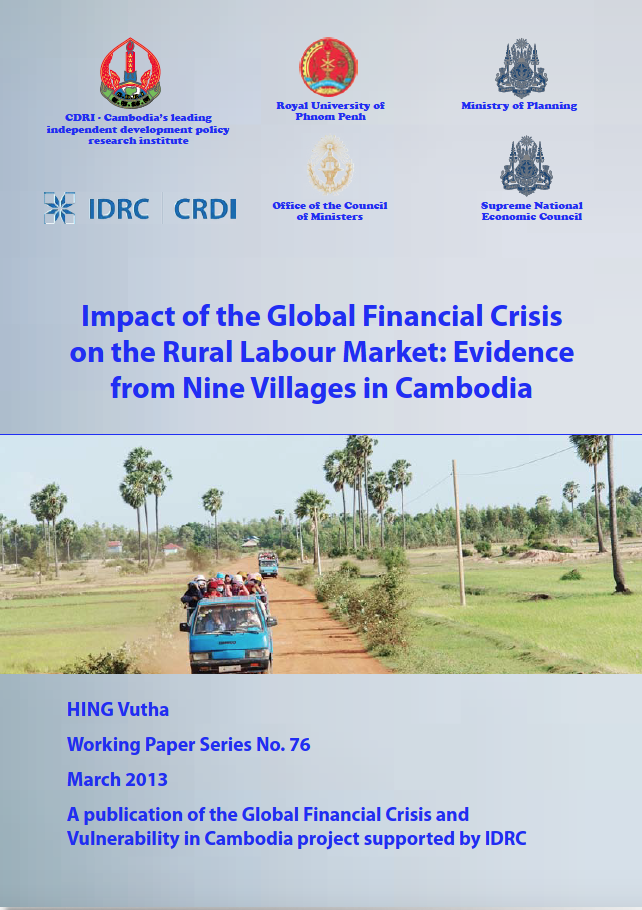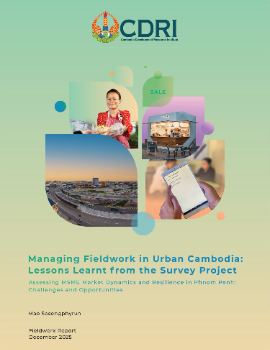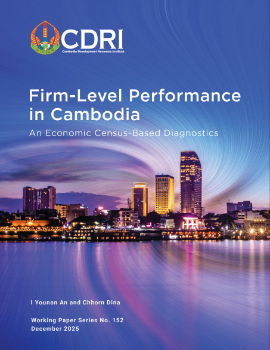
Impact of the Global Financial Crisis on the Rural Labour Market: Evidence from Nine Villages in Cambodia
Keyword: Rural labour market, global financial crisis, employment shifts, migration and wages, Cambodia household survey
Abstract/Summary
This report presents new work on the impacts of the global
financial crisis on the rural labour market in Cambodia. The analysis uses a
combination of descriptive statistics and econometric modelling with data from
household surveys in nine rural villages to track labour market changes before,
during and after the crisis and then assesses the magnitude of associated
impacts. The study produces a number of interesting findings.
Perhaps the most important result was that, because of the global
financial crisis, employment participation in rural Cambodia increased; the
employment structure shifted towards agriculture and informal sectors; real
wages decreased; and migration reversed from overseas and urban areas to rural
villages. In other words, the crisis put pressure on many households to involve
more family members in income earning. This situation, an increasing supply of
labour with constant or declining demand, put downward pressure on real wages
and caused incomes to fall.
Second, the rural labour market is the last resort for returning
migrants and laid-off urban workers in difficult economic times. This could
also imply that rural areas served as a safety net for a highly vulnerable
workforce affected by the crisis.
Third, although the analysis hasn’t been able to use full panel data due to the fact that the survey in 2009 involved 90 households, the report makes a significant contribution to existing case study literature on the global financial crisis and its impacts on Cambodia’s rural labour market, especially via using quantitative household data.



